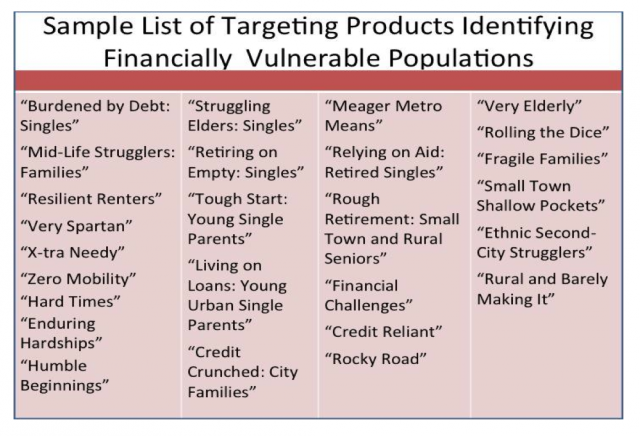The Evolution and Historical Journey of Data Brokers Over Time
페이지 정보

본문

In modern society, the role of entities that gather and analyze personal details is increasingly pivotal. These organizations play a significant part in shaping various industries, impacting how businesses operate and connect with consumers. Information flows quickly, creating a complex web of insights about individual preferences and behaviors. As technology advances, the methods used to collect and interpret this information have become more sophisticated, leading to new opportunities and challenges.
For years, these companies have adapted to changes in regulations, privacy concerns, and technological innovations. They have transformed their approaches, utilizing both traditional means and cutting-edge tools to enhance the depth of the information they provide. With each passing decade, shifts in societal norms and expectations have shaped their practices. From simple databases to intricate algorithms, the landscape has changed remarkably.
Privacy debates have surged, raising questions about ethics and transparency. Many consumers remain unaware of the extent to which their information is monitored. As methods become more advanced, discussions about consent and usage grow ever more critical; thus, striking a balance between business interests and individual rights remains a pressing issue. In this intricate tapestry of commerce, striking that balance requires ongoing dialogue and innovation.
Over time, these entities have become not just conduits of information, but also influential players in market dynamics. With insights drawn from a variety of sources, they empower businesses to make informed decisions. In an era marked by rapid technological advancement, understanding the trajectory of these organizations sheds light on the interplay between privacy, commerce, and consumer behavior.
Origins of Data Brokerage Industry
In the early days, the concept of collecting personal information for commercial use was a novel idea. Individuals and companies sought to understand consumer behavior. This desire led to the birth of an industry aimed at capturing and selling information. Over time, various practices emerged, shaping the landscape we recognize today. It all began with a simple notion: understanding audiences better.
As society developed, so did the methods for gathering intelligence. The transition from manual record-keeping to more sophisticated systems was crucial. Businesses needed insights to enhance their offerings. Thus, the groundwork for an extensive network of information exchange was laid.
- Manual record-keeping: Businesses recorded customer interactions on paper.
- Mail surveys: Companies began using postal surveys to gather consumer opinions.
- Subscription services: Certain firms offered compiled lists for a fee.
- Trade associations: They facilitated the sharing of information among members.
These initial steps paved the way for modern practices. As the economy grew, so did the need for more comprehensive insights. Businesses recognized that understanding consumer preferences could significantly influence their success. This realization spurred competition among firms trying to obtain valuable information.
One notable early player in this field was the credit reporting agency. They focused on gathering financial histories to assist lenders. This practice quickly expanded beyond just finance. Other sectors recognized the potential for similar insights. The importance of personal information began to flourish.
- Financial institutions utilized data for risk assessment.
- Retailers analyzed purchasing behavior to optimize inventory.
- Marketing agencies capitalized on demographics for targeted campaigns.
With the rise of technology, gathering information reached new heights. Automated systems replaced manual processes, increasing efficiency. This shift allowed for the collection of vast amounts of data in real-time. As digital platforms proliferated, opportunities for data acquisition expanded exponentially.
In summary, the inception of this industry resulted from a combination of needs and advancements. Companies sought to understand their customers better. Early practices laid a foundation, which would later be built upon by innovation and technological growth. The quest for knowledge continues to shape consumer relationships.
Key Players in Early Data Collection
In the realm of information gathering, certain entities emerged as pioneers. These organizations laid the groundwork for what has become a complex ecosystem of information exchange. Their early efforts set the stage for current practices. A variety of methods were employed, each contributing to the evolution of knowledge acquisition.
One prominent player was credit reporting agencies, which began to compile consumer information in the 19th century. By aggregating financial histories, they provided valuable insights for lending institutions. This practice not only facilitated lending decisions but also sparked a broader interest in understanding consumer behavior. The systematic collection of personal data began to take shape, driven largely by economic needs.
Another vital contributor consisted of marketing firms that recognized the potential of consumer insights. They utilized surveys, questionnaires, and observational techniques to collect relevant information. Through strategies aimed at understanding purchasing habits, these companies shaped marketing approaches of the era. Their innovations directly influenced advertising techniques, creating a demand for more intricate demographic profiles.
As technology advanced, the possibilities for gathering information expanded dramatically. The introduction of computers revolutionized storage and analysis capabilities. With the ability to process vast amounts of data quickly, organizations could draw conclusions about consumers in unprecedented ways. The integration of these machines into operational frameworks marked a significant transition towards modern practices.
Furthermore, telecommunication companies also played a crucial role in early information gathering. By monitoring call data and user patterns, they provided insights into communication trends. These findings were invaluable for various sectors, influencing both marketing strategies and product development. As industries began to recognize the power of information, competition intensified, pushing players to adopt more refined methodologies.
As the landscape evolved, ethical considerations began to surface. Public concerns over privacy prompted discussions about transparency and consent in information handling. Organizations found themselves at a crossroads, needing to balance profitability with responsibility. Such dynamics laid a foundation for the legislative frameworks that would emerge in subsequent decades, shaping industry standards.
Technological Advancements in Data Gathering

Rapid transformation in technology has dramatically altered how information is collected and processed. In today's world, sophisticated tools enable the acquisition of vast amounts of information. These innovations have streamlined processes that once took significant time and resources. Automated systems now analyze patterns and behaviors with remarkable efficiency. Consequently, organizations can make informed decisions at unprecedented speed.
Emerging technologies have introduced various methods for collecting personal insights. From social media platforms to mobile applications, opportunities for information gathering are abundant. While some techniques may seem innocuous, they often lead to profound implications for user privacy. One particularly transformative advancement is the ability to harness artificial intelligence, which allows for predictive analytics and enhanced targeting strategies.
In addition, the rise of big data has also revolutionized this landscape. The sheer volume of information now available presents both opportunities and challenges. Organizations can extract valuable insights from consumer behavior, which in turn informs marketing and product development. However, it raises crucial questions about ethical practices surrounding consent and transparency.
| Technology | Impact on Data Collection |
|---|---|
| Artificial Intelligence | Enhanced predictive analytics; improved targeting strategies |
| Big Data | Ability to analyze massive datasets for insights |
| Cloud Computing | Increased storage and processing power; accessibility |
| Mobile Technology | Real-time data collection through user applications |
Legislative measures have increasingly sought to address these technological developments. As innovations continue to evolve, timesofeconomics.com regulations struggle to keep pace, leading to a complex environment where privacy concerns are paramount. It brings the challenge of balancing the benefits of technology with the rights of individuals. Now, more than ever, awareness surrounding this issue has become essential for consumers.
In summary, advancements in technology have fundamentally reshaped how information is gathered. This transformation presents opportunities for organizations to enhance their operations while simultaneously challenging ethical boundaries. As innovations progress, the conversation around privacy will only grow in importance.
Impact of Legislation on Data Practices

In recent years, emphasis on privacy has grown significantly. With increasing awareness, consumers are becoming more concerned about how personal information is handled. This shift has prompted the introduction of various regulations aimed at protecting individual rights. Legislation plays a crucial role in defining how information can be collected, stored, and shared, fundamentally altering operational landscapes.
Several key laws emerged globally, influencing practices profoundly. For instance, the General Data Protection Regulation (GDPR) in Europe set a new standard for privacy protection. This regulation not only instilled a sense of accountability in many organizations but also sparked broader conversations about ethical data use. Similarly, the California Consumer Privacy Act (CCPA) has impacted the way companies operate on the West Coast.
Consumer rights have gained priority through these legal frameworks. Individuals can now request access to their personal records or even demand deletion of information. This empowerment shifts the dynamic between individuals and organizations, making transparency a necessary component of any business strategy. As a result, many companies have begun reassessing their data handling practices, striving to comply with these new laws while maintaining competitive advantage.
Compliance with such regulations, however, is not without its challenges. Organizations often face difficulties in adapting existing processes and systems to meet these stringent requirements. Furthermore, the potential for hefty fines is a significant motivator for many to prioritize adherence. The potential ramifications of non-compliance extend beyond financial penalties, affecting reputation and customer trust.
As these legal frameworks continue to evolve, so too do the expectations of consumers. Individuals are now more vigilant when it comes to their online presence. They actively seek out information regarding how their personal details are used. This growing demand for transparency further pressures businesses to adopt more ethical practices, fostering a culture of respect for privacy in the digital age.
Future trends indicate that legislative influence will only intensify. As technology advances, lawmakers will likely implement more stringent regulations to protect individual rights. Businesses must remain agile, prepared to adapt to new laws while addressing consumer concerns. Ultimately, a proactive approach toward compliance will not only mitigate risks but also build trust with consumers, establishing a competitive edge in an ever-changing landscape.
Consumer Awareness and Data Privacy

In recent years, individuals have become increasingly aware of how personal information is collected, used, and shared. As technology advances, the volume of information available about individuals grows exponentially. Consequently, understanding privacy rights has emerged as a crucial need. Many people now seek to navigate the complexities of consent, data collection practices, and the implications of sharing personal details.
With the rise of the digital age, numerous concerns regarding privacy have surfaced. More than ever, individuals are scrutinizing the ways companies handle sensitive information. Surveillance capitalism plays a significant role in this growing awareness. With a plethora of apps and services, users often unknowingly surrender their privacy.
- Increased scrutiny on consent agreements.
- Growing demand for transparency from companies.
- Concerns about unauthorized access and data breaches.
- Diverse opinions about the balance between convenience and privacy.
As people become knowledgeable about the threats to their personal information, they are starting to question the terms of service agreements they often accept without reading. The conversation surrounding privacy is evolving, pushing for more significant accountability from corporations. Additionally, social media platforms are under the microscope as users express dissatisfaction with unclear privacy settings.
- Awareness of data handling practices has never been more critical.
- Individuals are demanding more control over their own information.
- Many are taking steps to safeguard their privacy online.
- Advocacy groups are pushing for stronger regulations and protections.
As awareness grows, individuals are not just passive recipients of services; they are becoming informed players in the conversation about data handling. This shift is also influencing legislative discussions and prompting calls for stronger regulations. Laws around privacy rights are adapting to these evolving perceptions, reflecting a society that values personal autonomy and protection of private information.
In summary, rising consciousness regarding privacy issues leads to more informed consumers. People are actively questioning the practices of organizations and demanding more stringent control over their data. It's a dynamic shift, one with implications for the future landscape of privacy rights, data management, and corporate responsibility.
Shifts in Data Broker Business Models
In recent years, significant transformations have occurred within the industry of information aggregators. Traditional practices are being challenged by new methods of collection and distribution. Players are now adapting to changing market needs and consumer expectations. As technology rapidly advances, the ways to monetize personal information are also evolving. These shifts impact not only companies but also individual privacy and security.
Traditionally, firms operated under a model focused on bulk data selling to organizations. This approach often involved selling extensive datasets without nuanced understanding of individual needs. However, with increasing consumer awareness surrounding privacy concerns, reliance on opaque practices is diminishing. Consequently, innovative approaches are gaining traction.
Many companies are now exploring subscription-based services. Instead of one-time sales, they offer continuous access to updated insights. This model fosters stronger relationships with clients, encouraging businesses to understand and adapt to consumer preferences over time. With this transition, transparency becomes key, as clients request to know how their information will be used.
Furthermore, collaboration has emerged as a vital trend. Companies are joining forces with tech firms to enhance offerings. By integrating advanced analytics and artificial intelligence, they can provide deeper insights while respecting users’ privacy. This cooperative strategy not only elevates service quality but also builds trust.
Amid these changes, regulatory pressures also shape new business strategies. Compliance with evolving laws is paramount. Companies that can navigate these complexities stand to gain a competitive edge in the marketplace. However, this requires investing in compliance measures while balancing innovation. Achieving this equilibrium is no small feat.
As we look to the future, it's clear that adaptability will dictate success. Organizations must remain agile, continuously re-evaluating strategies to meet consumer demands. Those that embrace transparency, prioritize ethical practices, and enhance technological capabilities will thrive. Ultimately, the landscape will be shaped by those willing to redefine traditional models while placing a premium on privacy and data integrity.
Future Trends in Data Brokerage
Transformations within the realm of personal information management are imminent. Rapid advancements in technology shape the way entities collect and utilize consumer information. As society becomes increasingly aware of privacy concerns, adjustments are necessary. Expect significant shifts as organizations adapt to new realities.
Emerging technologies exercise profound influence on practices related to information acquisition. Artificial intelligence plays a pivotal role, enabling deeper insights and more efficient processes. Alongside machine learning, predictive analytics is set to revolutionize how trends are forecasted.
Legislation continues to evolve, impacting operational methods. Rules governing personal information usage become more stringent. Consequently, compliance with regulations is not just a necessity; it’s a critical priority for organizations.
| Trend | Description |
|---|---|
| Increased Regulation | Stricter compliance requirements are emerging globally. |
| Enhanced Consumer Control | More tools for individuals to manage their own information. |
| Data Ethics | Focus on ethical practices in information handling is rising. |
| Cross-Industry Collaboration | Partnerships between organizations to enhance transparency. |
| Privacy-First Models | Transition towards business strategies prioritizing user confidentiality. |
Public awareness drives demand for transparency and ethical practices. As individuals seek reassurance regarding their details, entities must demonstrate responsible management. This shift isn't merely reactive; it’s a proactive measure to build trust with consumers.
Looking ahead, maintaining relevance means adopting innovative strategies. Companies will increasingly rely on advanced technologies while balancing the need for privacy. Meeting expectations entails a commitment to ethical considerations in every decision made.
- 이전글Green Cabinet Source 24.10.22
- 다음글How A Lot Do You Cost For a Way To Purchase Rolex Replica On Aliexpress 24.10.22
댓글목록
등록된 댓글이 없습니다.


